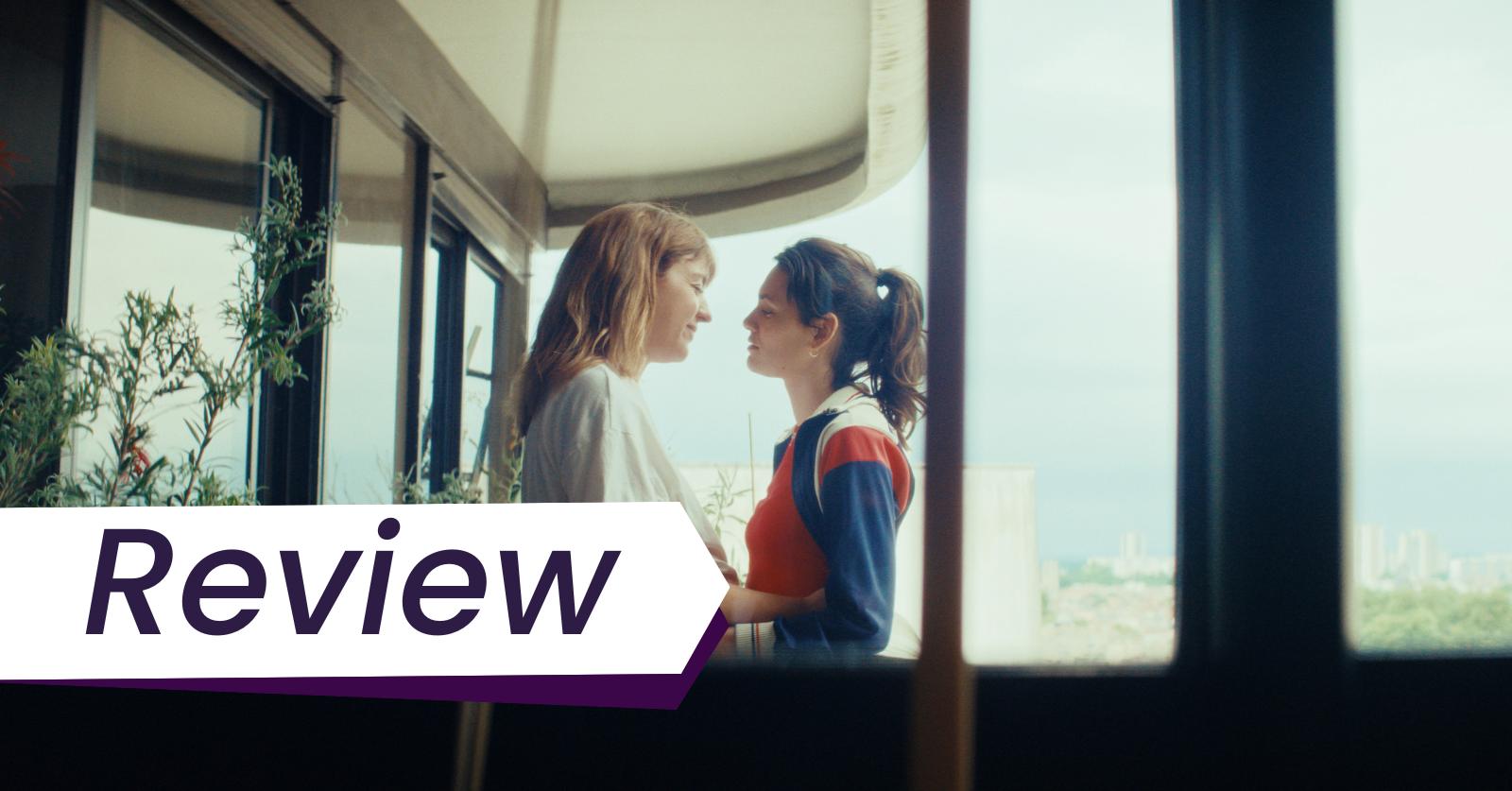Alex Heeney reviews Alice Douard’s debut feature Love Letters, which screens in the Critics’ Week sidebar at Cannes. The film tells the story of a queer woman in 2014 whose partner is pregnant with their child, and the paperwork involved with becoming her daughter’s legal parent.

Discover one film you didn’t know you needed:
Not in the zeitgeist. Not pushed by streamers.
But still easy to find — and worth sitting with.
And a guide to help you do just that.
Now that same-sex marriage has been legal in most Western countries for years, it can be easy to forget that the dark ages for queer people were just a decade ago. As Weekend (2011) director Andrew Haigh put it, “Everyone’s like, ‘Everybody loves gay people now. It’s all great. Everyone loves queer people. But it wasn’t that long ago when it was a very, very different situation. I sometimes get a bit frustrated that people forget that.” Weekend, a British film made before same-sex marriage was legalized in the U.K., feels a little like a period piece now. Alice Douard’s 2014-set feature debut about a queer couple, Love Letters (Des preuves d’amour), is a period piece and a vital one.
The film opens with the vote to legalize same-sex marriage and adoption for married same-sex couples in France. A year later, we meet two beneficiaries of this new policy. Céline (Ella Rumpf) and Nadia (Monia Chokri) are now married, with Nadia expecting a child, thanks to IUI in Denmark. (It’s not yet legal for same-sex couples in France, so travelling out of the country is just another piece of red tape they’ve had to cross.) But becoming the second parent is a complicated and emotional legal process for Céline. Marriage equality isn’t the same as parental equality, and casual homophobia doesn’t just disappear overnight.
After accompanying the heavily pregnant Nadia to one of her prenatal appointments, we follow Céline on a long trek across town — including changing trains — to meet with the lawyer who will help her to adopt her daughter. It’s an important sequence (with fantastic editing), which tells us that the film will be following Céline’s perspective rather than Nadia’s. And this initial time we spend with her alone is on a trek that mirrors Céline’s solo emotional journey: she’s in a very different place as an expectant parent than Nadia because until she adopts, she has no parental rights, despite being married to Nadia.
The lawyer explains that Céline needs fifteen letters from loved ones (the film’s French title, Des preuves d’amour, captures this better, which loosely translates to ‘proofs of love’). The letters must document Nadia’s obvious desire to be a mother, as well as her connection to the newborn, once the baby is born. They can’t all be written by queer people. They also need to come from family members. Essentially, Céline must prove that she has the social approval of others as a parent, an ordeal that straight parents do not have to suffer. It’s also such new legislation that nobody knows the rules, which can lead to awkward conversations.
Letters from family members about your right to be a parent would be complicated for many people, but especially for queer people, many of whom would have been estranged from their parents back in 2014 (and many still are). Céline has a distant relationship with her mother (Noémie Lvovsky), not specifically because she’s queer — as a famous concert pianist, her mother was absent anyway — but not coincidentally either. Meanwhile, Céline has lost touch with some of her straight friends as they disappeared into parenthood, so she has to reconnect with them to ask for this favour. It’s a little indignity and a big one to be forced to ask others for permission to be a parent.
There’s a cultural script for how to talk to expectant mothers: you look at their belly, ask about their discomfort, and check on their health. Even though Nadia is queer, her family and friends more or less know how to celebrate her pregnancy. That’s not the case for people in Céline’s situation whose partner is expecting a child who does not share her genes. And it’s especially strange when the people in your life expect you, as a woman, to be pregnant if you’re about to have a child with your partner.
Douard’s script sensitively shows us how even the most well-meaning people struggle with how to behave in this new normal. When Céline tells her mother she’s going to be a grandmother, she assumes that Céline is so newly pregnant that she’s not yet showing. She has to be corrected that it’s Céline’s partner who’s pregnant. She’s not the only one, and Céline feels like she has to constantly defend why she didn’t get to be pregnant first (Nadia is older, and Céline expects to carry their second child). She’s a little jealous of Nadia’s position in this, too. Lest Céline think this might be a particularly queer feeling, Céline’s mother reveals that she was also jealous of Céline’s father, too, for his bond with Céline.
In one hilarious sequence, a well-meaning and young obstetrician keeps awkwardly asking for Céline’s medical history alongside Nadia’s. That’s the usual procedure: ask both partners. But the partners are usually both biological parents. Céline has to point out to him that she has no genetic connection to Nadia’s baby so her family history is irrelevant. He doesn’t have a script for that — Nadia is his first patient with a same-sex partner — so he keeps asking for her history. Oddly, it helps them all feel like Céline is closer to the process. Other people are more overtly homophobic.
Although Céline’s experience is a specifically queer experience, it’s also akin to one that many straight men face that is rarely depicted on screen. We’ve seen men who are too immature to be ready to be parents, like in Knocked Up. We’ve seen a man fall into a relationship with a woman before discovering she’s having his abortion (Obvious Child). We’ve seen men more obviously eager to have the baby than their pregnant partners (Unexpected). What I haven’t seen is the story of a man who is excited to be a parent but terrified, who feels detached from the process because he isn’t pregnant, and who is mature enough that the problem isn’t that he’s an unsupportive partner.
And that feeling of not-quite-being a parent yet while your pregnant partner already has a physical relationship with your future offspring is what leads to one of the film’s best scenes. On a tour of the hospital for very pregnant women and their partners — a what to expect when you come to the ward in a few short weeks — Céline meets an expectant father (Misericordia’s Félix Kysyl) who is so nervous he faints. He ends up lying down in a bed with his legs in stirrups to recover. Outside, the pair bond over that shared feeling of being excited and terrified to be a parent and yet not quite feeling like one or quite in step with their partners.
In her first feature, Alice Douard already proves herself as a major talent to watch — not just because she’s telling an important story but because of how she tells it. The film is full of thoughtful images to highlight Céline’s isolation. The hallways of the hospital become cramped Gothic spaces because she feels she doesn’t quite belong. A gorgeous wide shot of Céline smoking on her apartment balcony places her amongst a series of modernist balconies that look like they’re caving in on her — a great production design choice that mirrors her emotional state. Douard also gets excellent performances from her actors, finding many quiet moments with Céline where Rumpf just gets to react with conflicting emotions to the unchartered waters she’s navigating.
The film is replete with Céline’s solo journeys through the city, because as the not-pregnant parent, it can be a lonely journey. The more she’s able to openly share this with Céline, the more we start to see them in two-shots, and toward the end, walking hand-in-hand through the city. As someone who works backstage at a music venue, Céline’s out-of-the-spotlight job mirrors her position both in her relationship with Nadia and her famous concert pianist mother. The spotlight is rarely on her. As Céline is the younger partner in her relationship who also earns less (Nadia is a dentist), class dynamics also come into play.
Ultimately, Love Letters is a warm and sensitive film that reminds us real equality can’t be achieved until there’s equality in the taxing minutiae of paperwork, not just in the stuff that makes headlines.
Discover one film you didn’t know you needed
Not in the zeitgeist. Not pushed by streamers.
But still easy to find — and worth sitting with.
And a guide to help you do just that.

